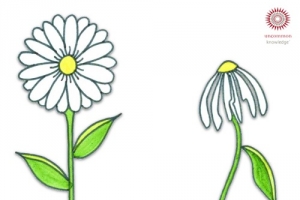Is Your Label Limiting You?
Hidden suggestions that restrict your potential and what to do about them
 What suggestions are your hidden labels giving you?
What suggestions are your hidden labels giving you?Have you ever been described as a certain 'type' of person? Or maybe you've at some time labelled yourself. Perhaps as 'clever' or 'dumb', 'extrovert' or 'introvert'. Maybe as 'damaged' or as a 'victim'.
I'm not suggesting that none of these labels have ever applied to you in part. We've all been dumb and clever at different times and in different ways.
Words matter, because they can shape expectation. When we are labelled we can sometimes be confined by that label. We can start to live up or down to that label, especially if it's been stuck onto us by some source of authority. What should have been temporary becomes permanently stuck on.
Language, the way we frame reality, can shape our expectations; and our expectations can in turn powerfully shape and prime our experiences. Now that may be fine if, for example, you have been labelled as gifted, strong, and resourceful and have come to feel that you are basically this kind of person. But some labels can have terrible impacts on people.
The problem with a limiting label is that it can start to spread and cover not just a part of who you are but all of you. This is a particular problem for those with low self-esteem. They might fail a science test and conclude "I am just not scientifically minded" but then expand that specific self-label to their whole identity: "I am just plain dumb!" Similarly, a person with depression may feel that "I am a depressive" rather than the less depressing "I have sometimes been depressed."
"I could never do that!"
Perhaps you've heard people say things like, "I'm not the kind of person who could ever do that." If so then you've seen the limiting effects of labelling first hand.
The way we frame ourselves and other people (and the way others frame us) has consequences - not least of all in the realms of mental and physical health.
People who experience depression may be labelled as 'depressives'. They (and the people around them) develop a whole set of expectations around that identity. And those expectations can drive feelings, behaviours, and experiences.
Some startling research really brings home the importance of how we see ourselves and our situation.
'Cured' beats 'in remission' in cancer
In one study (Carson, Langer, & Flodr, 2018; see also Langer, 2000), a group of cancer survivors who considered themselves "cured" did better than a group who, similar in all other ways, thought themselves to be "in remission". The "cured" group were happier and stronger, experienced less pain, and functioned better socially. Think about that for a moment. People actually experienced less pain if they felt they were cured rather than merely in remission!
So it seems that how a patient sees their disease (or even whether they consider it a disease at all, as in the case of alcoholism or depression) can have big implications for how they experience it.
Whether someone considers depression or alcoholism a disease that is part of who they are (an attitude strongly encouraged by the pharmaceutical industry) versus something that is not integral to their identity and herefore can be mastered can make a lot of difference.
Anyone can contract cancer and fare badly with it, no matter what their attitude. However, there is evidence to show that those who don't see cancer as who they are fare better than those who come to identify themselves exclusively as 'cancer patient' (see Golub, 2004 for a discussion of this).
I'm not suggesting we should prematurely say we or anyone else is 'cured' of an acute physical illness, because we may need ongoing medical supervision for a long time. What I am saying is that the way we frame ourselves matters. And the way others frame us matters too. Even to the point we can lose our freedoms.
Even professionals can't get past labels
In the early 1970s researcher David Rosenhan decided to test how effectively fully qualified psychiatrists could distinguish between the sane and the insane (Rosenhan, 1973). He and eight other volunteers faked their way into various mental institutions. The problem wasn't getting in; it was getting out!
The aim of this research was to see whether the psychiatrists would see through the act, or whether they would interpret any behaviour through the lens of the label (to mix my metaphors!). Would an 'insane' label determine that the professionals now saw evidence for insanity even in quite sane behaviour?
Our view of the world is always warped by the biased lens we use. But the danger is that we assume 'professionals' are immune to this.
So how exactly did these undercover researchers get themselves admitted to high-security psychiatric hospitals?
Simple psychological symptom, complex psychiatric diagnosis
The nine experimenters all presented to separate outpatient departments at the same time on the same day in October 1972. As per the instructions of the lead researchers, all nine reported that their only symptom was that they all had heard a voice that said, 'Thud'. They had no other symptoms, felt perfectly happy, and behaved 'normally' at all times.
All were locked up in their various institutions. All quickly reported that the 'voice' no longer bothered them and they felt fine. All were reassured they would be released once they were 'better'.
So were they?
Blinded by training
Not one of the professionals recognized the normality and health of these 'patients' in front of them. None, or almost none, could see through the labels 'insane' and 'paranoid schizophrenic'. All the experimenters were fed a plentiful supply of anti-psychotic pills and all managed to spit them out in the bathrooms.
Fascinatingly, it was the other patients who spotted that lead researcher David Rosenhan was a fake even while the professionals remained oblivious. Clearly the other patients were not in the business of labelling!
Rosenhan found that the mean stay was 19 days, with the longest being 52 days! Just for reporting a single symptom on a single occasion. All the experimenters reported they had just behaved as normally as possible during their internment.
But that was decades ago. Surely this type of thing wouldn't happen now?
It's happening today too
Decades after Rosenhan's research, writer Lauren Slater did her own informal research in a bid to semi-replicate his results (Slater 2004). She presented to several psychiatric outpatient departments and, just like Rosenhan's experimenters, reported having heard the word 'thud' once with no other symptoms.
Slater was uniformly prescribed antidepressants and antipsychotic medications - seriously powerful drugs with a whole host of side effects. There's no doubt about it, we live in a 'chemical age'.
How quickly we can be labelled!
Of course, none of us is immune. You, I, and everyone else can come to feel we are how we seem to others.
How do others see you?
What we tell people about ourselves and what others say about us can form hard-to-remove labels, which is exactly why celebrities are so keen to employ the services of public-relations experts. (They may lose touch with reality if they start to believe the myths they hear about themselves!)
Actually, it's not just celebrities who are keen to shape public perception of them. Research found that that many adults are prepared to pay to improve their social media image (Holm & Samahita, 2018). It seems that we want to be able to choose the labels others place upon us.
Be careful what you call yourself
As the old saying has it, "Give a dog a bad name and hang him." Once we have labelled someone, or ourselves, then all our behaviour may become determined by that limited perspective.
If we label someone as 'difficult', or 'competent', or 'manipulative', and if that label is stamped hard, then we can bend any future observations of that person's behaviour to fit the label. And sometimes we have to do quite a lot of bending in order to excuse ourselves from the effort of updating our first impressions. What's more, labelling can happen in an instant - and stick.
The tendrils of labelling stretch deeper into life than many of us realize. This can be useful to a certain extent. It's good to know what we are like as people, our strengths and interests. But at the same time, we need to see that we can all become much more than what our limited view of ourselves dictates.
Are you really a 'type'? All of you?
It's dangerously easy to label oneself as a certain 'type'. This can, over time, become a self-imposed psychological straitjacket, preventing us from doing things that contradict our self-assigned label. For example, if I see myself as 'alcoholic', or 'depressive', or 'stupid', it will be that much harder for me to behave in ways that go against these labels. But if I can see these states as something my 'essential self' merely passes through, then I have the potential to change.
While for some it can be a relief to "finally know what is wrong with me" - the label can meet the need for certainty, identity, or even a kind of status - it's important to understand that labelling determines behaviour as much as the other way about.
Labels are powerful. If we label a child of average ability as 'clever', that child may actually become cleverer - so if we are going to label we can do it in ways that encourage, not restrict, growth.
But applying negative and restrictive labels to people can also cause this looping effect in which the label and its limitations become a self-fulfilling prophecy (Tauber, 1998).
So be careful what labels you place upon yourself. Because I can guarantee you are always more than what seems to be the sum of your parts.
Keep an open mind, think carefully about how you describe yourself to others, and remember: one 'thud' does not an insane person make.
References
- Carson, S., Langer, E. J., & Flodr, A. (2018). Remission vs. cure: the effects of labels on health and well-being. Manuscript in preparation.
- Golub, S. A. (2004). Optimism, pessimism, and HIV risk behavior: Motivation or rationalization? Harvard University (PhD dissertation).
- Rosenhan, D. L. (1973). On being sane in insane places. Science, 179(4070), 250-258.
- Slater, L. (2005). Opening Skinner's Box. W W Norton & Co Ltd.
- Holm, H. J., & Samahita, M. (2018). Curating social image: Experimental evidence on the value of actions and selfies. Journal of Economic Behavior & Organization, 148, 83.
- Langer, E. J. (2000, July 1). Can words cure cancer? Psychology Today.
- Tauber, R. T. (1998). Good or bad, what teachers expect from students they generally get! ERIC Digest.






